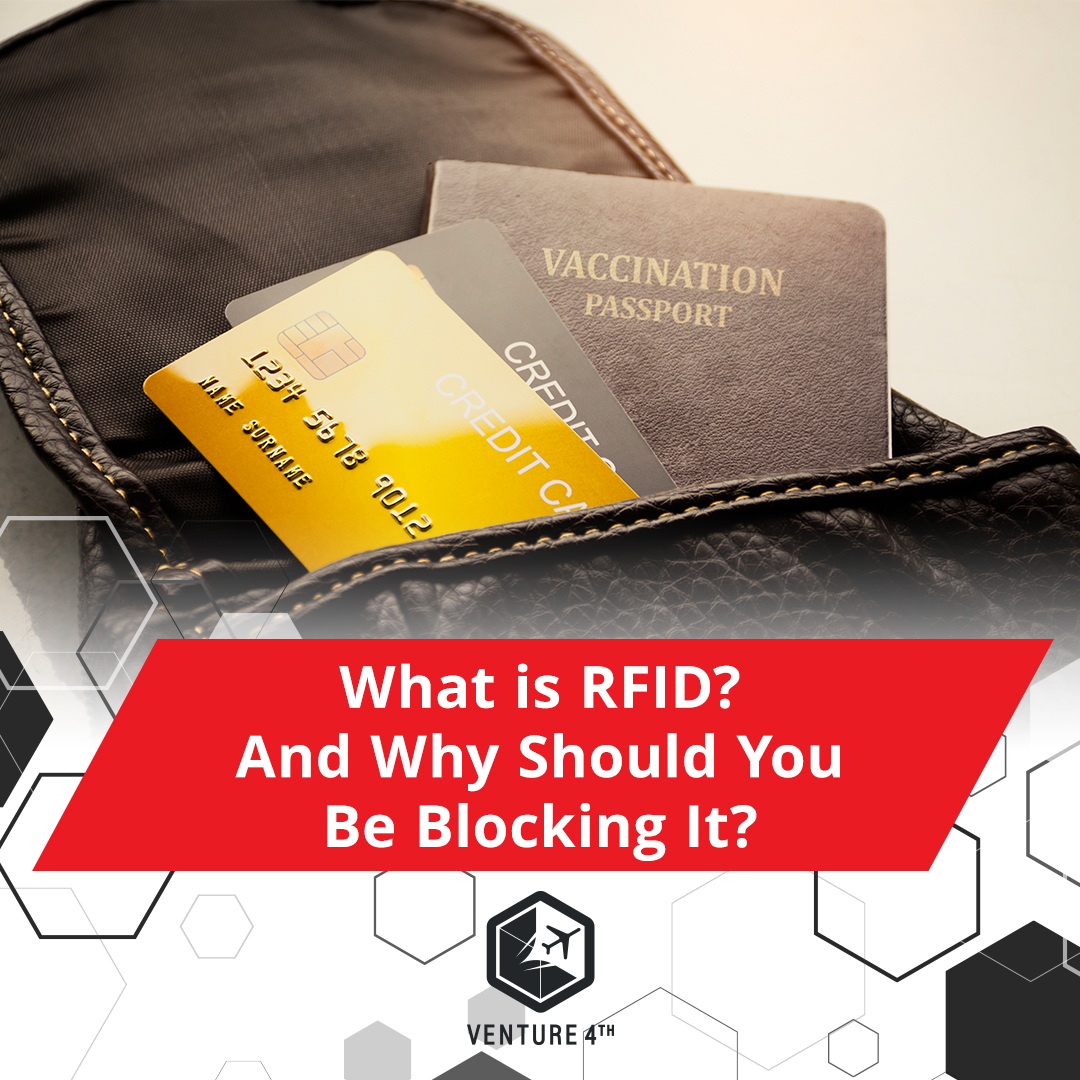What is RFID technology?
RFID, otherwise known as Radio Frequency Identification devices, utilizes tiny microchips that store sensitive personal and financial information. Usually, these chips are stored within your passports, debit cards, credit cards, professional identification, and even some drivers license for the sake of convenience. In fact, some studies indicate that there are hundreds of millions of active RFID chips across the world today.
While these chips can be extremely useful, by ensuring that you never again have to enter a pin number or spend time swiping your card when you’re in a hurry, they also come with a number of dangerous threats. After all, if other technology can read the information from your cards through an RFID chip, malicious individuals may find ways to access it too. This is one of the many reasons why RFID blocking wallets, sleeves, and bags have begun to grow in popularity.
Understanding RFID
For people who are new to the concept of RFID, these chips can be incredibly complex and difficult to understand. An innovation in technology, RFID chips are similar to miniature two-way radios that are small enough they can fit inside of a passport, credit card, or even an article of clothing. This tiny chip acts as a transponder, storing essential identifying data which can be queried, read, and examined even at a distance of as much as several feet.
While these pieces of wireless technology appear to be very effective when it comes to speeding up the process of paying for merchandise and completing important transactions, they can also cause a number of anxieties when it comes to security. With RFID scanners, it’s still important for scam artists to pick up your information, regardless of the fact that the technology has improved over the years.
The Widespread Implementation of RFID
A few years ago, everyone was asking the question: “What is RFID?”, yet today, the technology has been implemented across the globe, from the United Kingdom and Australia, to the United States. Because the technology is used so widely across various countries, and in various ways, RFID chips contain a great deal of personal and private information. In other words, though these chips are great for improving convenience when you’re purchasing items or proving your identity, they’re also vulnerable to problems like identity theft.
When you’re carrying your RFID enabled items with you, you’re also running the risk that anyone nearby with an expensive RFID reading device will be able to copy and identify all of the information contained about you, and your finances. While the technology used in these chips is improving, and many RFID enabled cards and documents are now far safer, many experts still recommend the use of RFID-blocking materials and sleeves to keep data secure.
RFID protection wallets are inexpensive ways for individuals to ensure their data is kept personal and private. They’re also incredibly easy to use, just slip your card into a small wallet, and keep it with you when you leave the house.




